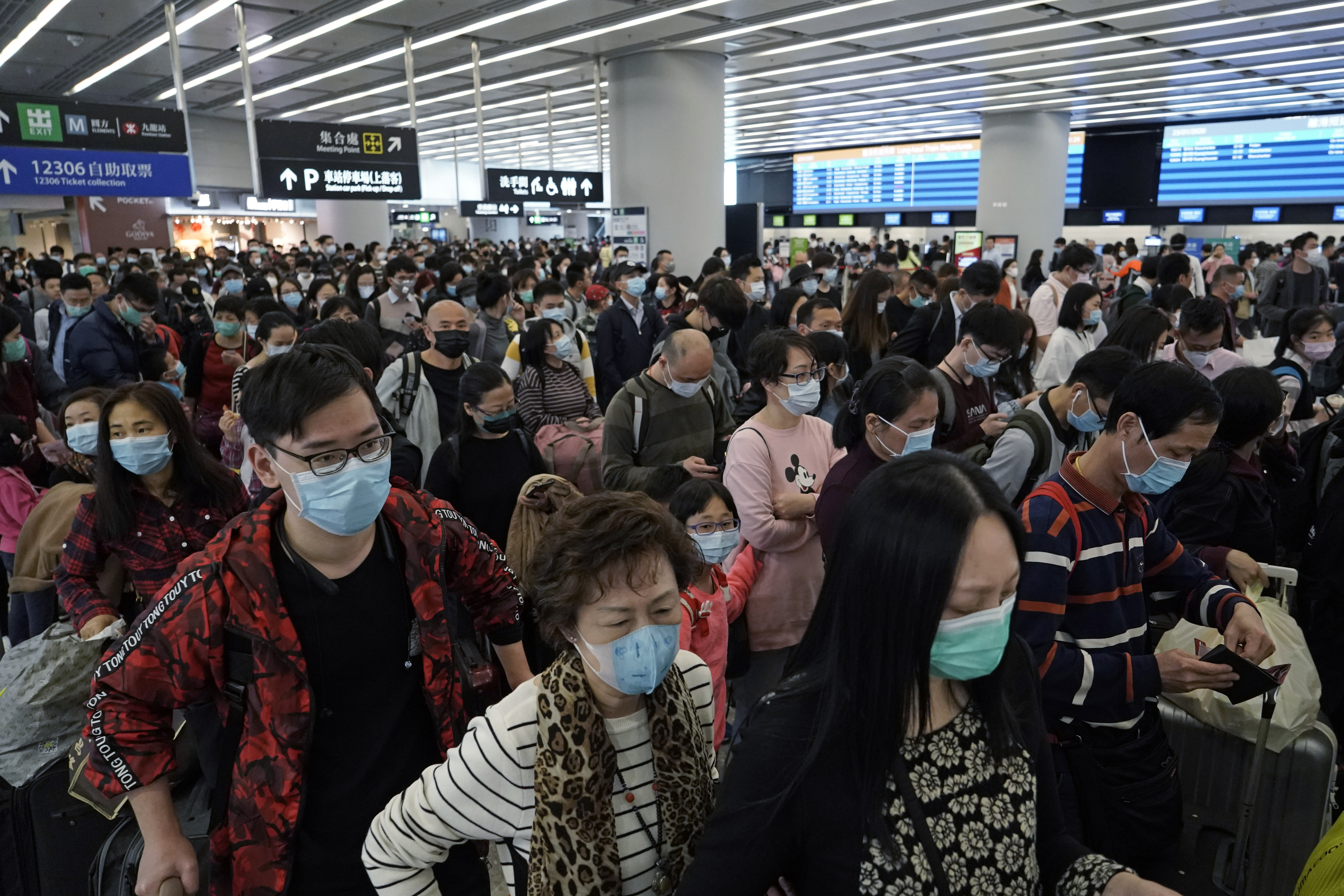A suspected case of novel coronavirus is being investigated in Brazos County, Texas, the home of Texas A&M University.
The Brazos County Health District said Thursday the male patient is a Texas A&M student who recently traveled to Texas from Wuhan, China, where the coronavirus originated.
The District said the student began showing symptoms after returning home to College Station.
The student admitted himself to an emergency room at a local hospital Wednesday night. Officials didn't specify which hospital. They said ER staff quickly realized the patient met the standards for coronavirus testing.
They say he had mild flu-like symptoms and traveled to an affected area within 14 days.
Officials say they didn't yet know the patients path home and if that path took them through the heavily trafficked Dallas-Fort Worth International Airport or Bush Intercontinental in Houston.
Officials with DFW Airport said Thursday, "The Centers for Disease Control has not ordered screening of individual passengers at DFW Airport at this time. The Airport is prepared to support the CDC and the Tarrant County Public Health Department if screening is necessary."
Brazos County health officials said the patient is being kept isolated at home while precautionary testing is completed.
Confirmation testing will be done by the Centers for Disease Control and Prevention in Atlanta. The sample is expected to arrive by Friday morning and should be completed within 24 hours, according to Dr. Eric Wilke, with the Brazos County Health Department.
Wilke said the the student population was at a low risk for exposure. Wilke added that it was safe for students to attend classes. Students who have questions or concerns, can contact A&M’s Student Health Services at info@shs.tamu.edu or on its Facebook page.
Should the case be confirmed coronavirus, detailed contact tracing will begin to identify the path the person took home from China as well as to identify others who may be at risk of exposure and infection.
There is no treatment for coronavirus. Wilke said they are treating the patient's symptoms, which were considered mild.
Coronavirus symptoms are flu-like and include fever, cough, shortness of breath, and sore throat. If medical care is needed, please call your healthcare provider first before showing up for testing/treatment. Those that have traveled to Wuhan, China and have flu-like symptoms are encouraged to call their local health department.
Brazos County is located south of Dallas-Fort Worth, between Houston and Austin.
The first case of coronavirus in the United States was announced on January 21. In that case the patient, in Seattle, had also recently traveled to Wuhan, China. Hundreds of cases have been confirmed in Wuhan and elsewhere in China.
The Centers for Disease Control and Prevention has travel to Wuhan, China at a Level 2: Practice Enhanced Precautions, advising travelers that preliminary information suggests older adults with underlying health conditions may be at an increased risk of infection. Read more from the CDC here. Others recommend all nonessential travel to Wuhan be avoided.
The general public is encouraged to practice general preventive actions to avoid infection, including those practices used to avoid the flu.
TIPS FOR AVOIDING FLU
- Get a flu vaccine every season, especially people with high risk
- Wash your hands often with soap and water
- Cover your mouth and nose with a tissue when coughing or sneezing
- Avoid close contact with people who are sick
- Stay home when you are sick
- Avoid touching your eyes, nose or mouth
- If you're experiencing flu symptoms, visit your doctor and begin taking antiviral medications to help you recover more quickly
WHAT IS FLU?
According to the Centers for Disease Control and Prevention, flu is a contagious respiratory illness caused by the influenza virus that affects the nose, throat, and lungs. Some people, those age 65 and older or young children, or those with underlying medical conditions, are at higher risk for flu complications. There are two main types of flu, Flu A and Flu B, that are generally responsible for seasonal flu epidemics each year.
Learn more about the flu virus here from the CDC.




